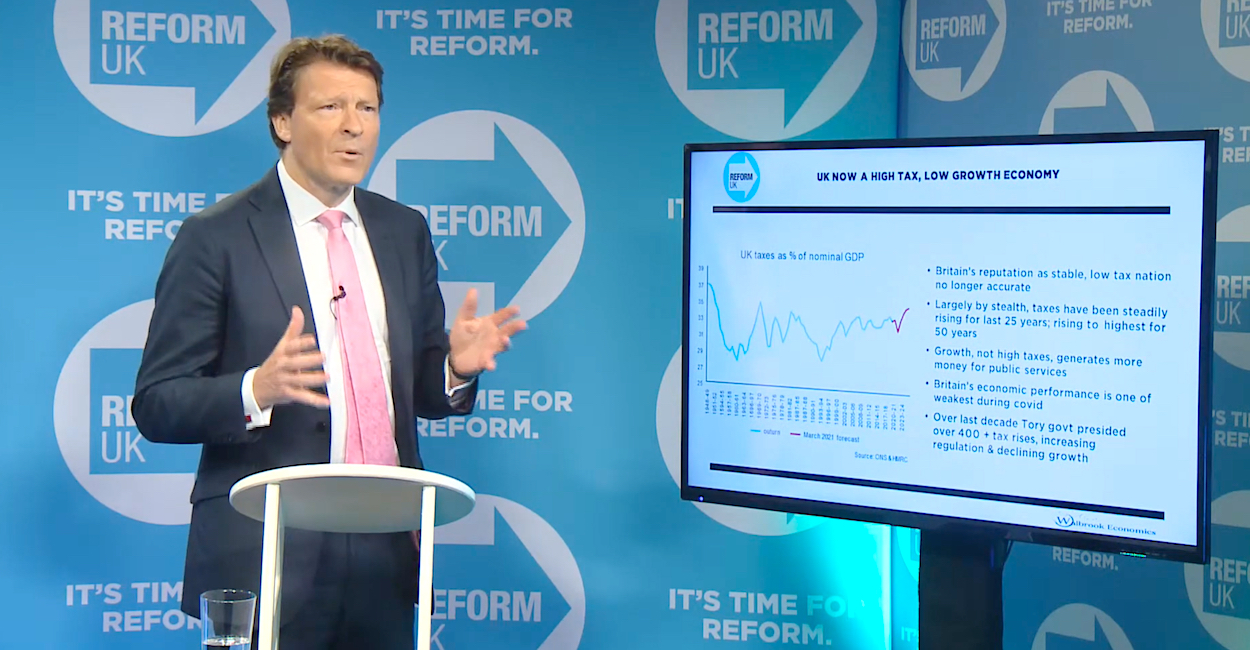By Richard Tice – 3 minute read
MARKETS ARE BRUTAL and will abuse anyone perceived as weak. At the moment, bizarrely, it is the strongest player in the market who is allowing itself to be bullied after the bazooka fiscal event last Friday. The markets only heard about tax cuts, but also wanted to hear about cutting wasteful government spending and reducing inflation. This is easily resolvable.
Firstly the Chancellor should announce that the Government will aim to cut tens of billions of pounds of bloated government spending, in the same way as all of us are looking at squeezing our household budgets.
Secondly the Government should work with the The Bank of England to starve the markets of bonds just when the market expects a surplus of these bonds.
The Bank of England began printing money via bonds, on its own account in a process called Quantitative Easing (QE), in 2009 to help the Government get through the financial crisis. This was essential because the external credit markets could not fund the monies needed, almost at any price.
The Bank of England held some £900 bn of QE debt on its balance sheet. Remember this is essentially internal debt created by the Bank, it is not external debt. Care is needed but it can be a valuable control mechanism in times of stress.
The Bank “pretends“ it is external debt, by nominally allocating it with the same “ interest rate “ and expiry duration profile as per the external debt sold around the same time by the Treasury Debt Management Office into the credit markets.
The Bank of England recently announced when the QE expiries come up from hereon, it is going to try to sell equivalent debt in the external market rather than simply roll it over on its own computer. This means it will destabilize the external market by selling at least £10 bn per quarter more than normal. The result is that the credit markets know the bank is a forced seller. This is pushing the interest rate up, which is significantly responsible for the fall in the pound on currency markets.
This is totally the wrong strategy and is costing the taxpayer huge sums. Confidence is being damaged in the UK economy. The Bank of England must stop immediately its program of selling QE bonds back into the external market.
I have been saying for over 15 months that all the Bank of England QE debt, now totaling about £875 bn, should be converted internally at the Bank of England into a 75 yr Corona War Bond with a nominal interest rate of 1% per annum. It should then be left on the Bank’s computer for that whole duration. It will deflate away into irrelevance over time. This immediately tightens the external market, tightens interest rates and removes all the refinance risks and interest rate risk on the QE debt.
The QE debt is approx. 36% of the total government borrowings of some £2.4 trillion, which is some 95% of total UK GDP. This total debt is easily manageable, both in comparison with our history and with international comparators like the US. For 30 years, the UK had over 150% debt to GDP between two World Wars, which fell to sub 75% post WW2 with 2 decades of high growth. The key is we must grow our way out of a crisis. We cannot tax our way out of the quicksand of low growth.
History is now repeating itself with some adjustments. To get through this energy crisis under its current strategy, the Government is going to have to embark upon a massive new QE programme as the external market is simply not going to pay for £200 bn plus borrowing required over the next 18-30 months.
We are in a war like situation with a Global Energy War and the Govt must respond in a warlike manner.
The Government must not allow itself to be bullied by the markets. It must take back control. It can semi-starve the external credit markets of new gilts, to bring the gilt interest rates down by using QE.
To do this the Chancellor must inform the Bank of England Governor that the strategy has changed to adapt to the warlike situation. This will save the taxpayer tens of billions of pounds every year in interest payments, giving more money to use elsewhere or reduce the strain on overall budgets.
The control mechanism is to ensure Parliament must approve a total debt ceiling quantum and percentage relative to GDP, as happens in the US. A Government would have to seek Parliament’s approval for any move to exceed these amounts.
The Government is the strongest player in the market. It is time to act like it, not allow itself to be pushed around.
If you If you appreciated this article please share and follow us on Twitter here – and like and comment on facebook here. Help support Global Britain publishing these articles by making a donation here.
Richard Tice is leader of Reform UK.

